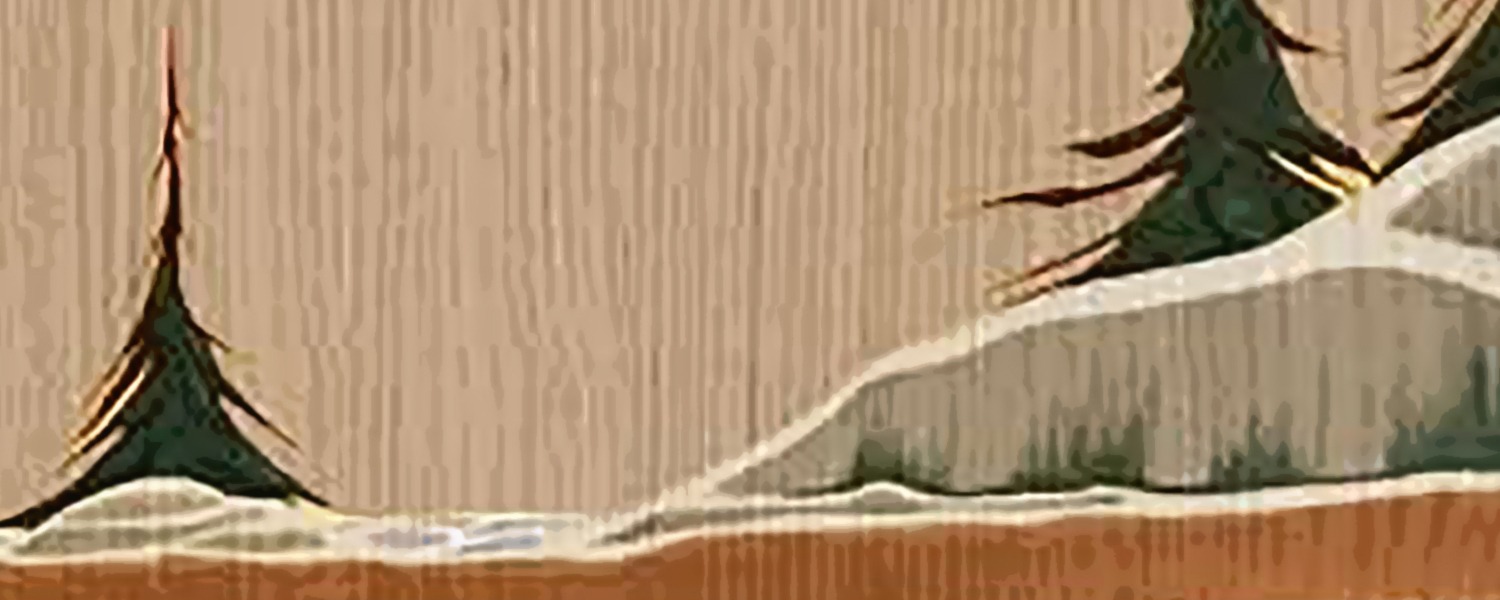Contents
Written by
Nick Sowsun
As the COVID-19 crisis unfolds, intense fears and anxieties are being felt in First Nations communities across the country, as well as in other Indigenous communities. For many First Nations, the one clear Canadian legislative tool they have to control and restrict movement onto their reserves – Indian Act by-laws – is broken. Most of these by-laws have gone unenforced for years, and many First Nations don’t even bother passing them, knowing about the problems with enforceability. As the crisis unfolds and federal, provincial and territorial governments are faced with a potentially catastrophic situation on First Nation reserves across Canada, they are finally waking up to this issue and scrambling to find a solution. While there are also other problems related to the enforcement of these by-laws, including the inability to issue tickets and a level of fine that offers no realistic deterrent, here we focus on the fundamental issue of lack of enforcement.
In order to assist First Nations in controlling movement on their reserves, federal and provincial/territorial governments could consider a variety of emergency measures such as invoking powers under the federal Emergencies Act and their respective provincial/territorial acts such as Ontario’s Emergency Management and Civil Protection Act to assist in enforcement of First Nation by-laws. While these temporary measures could assist First Nations in protecting their communities in the short term, they do not address or provide a lasting solution to the ongoing issue of why First Nations by-laws are not being enforced in the first place.
Since the COVID-19 pandemic, we have seen First Nations increasingly want to use tools to control traffic on their reserves, and increasingly control the ability of outsiders to come onto reserve or require isolation for members returning home. We have also heard reports of non-members trying to come into First Nations, seeking refuge from the threat of the virus or to hunt and fish. However, First Nations governments are acutely aware that the risks of the virus coming to their communities is high, with crowded housing, often unclean water, and more limited access to health and emergency services. Now more than ever, the ability to control access is important.
The Problem
First Nations by-laws are ignored by many police forces across the country because those police forces know that in most cases, there is no effective way to prosecute or convict those who violate these by-laws. While section 81 of the Indian Act allows bands to make on-reserve by-laws in areas including traffic control, residency, public health, and intoxicants, and while some of these by-laws can include penalties such as fines and/or imprisonment, the Indian Act does not specify whether the provinces/territories, federal government, or First Nations themselves are responsible for prosecuting by-law infractions. Lack of federal and provincial/territorial coordination or leadership on this issue has led to a situation where oftentimes neither federal nor provincial/territorial levels of government are choosing to prosecute these laws.
Police officers don’t want to enforce laws that cannot be prosecuted. For the police officers, arresting or otherwise affecting the Charter rights of individuals in order to enforce a law that may not be prosecutable raises a fear of liability.[1] From the perspective of a police force, when facing a request to enforce a forced removal from a reserve, the Police Chief or Detachment Commander must consider whether it wishes to allocate the time and resources to a law that has no chance of implementation because there is no provincial/territorial court that recognizes it. Many police forces view Indian Act by-laws as not having the same legitimacy as federal, provincial/territorial or municipal law, and as not being worth the liability risk and resource expense required to enforce them.
Root of the Problem
So why aren’t Indian Act by-laws prosecuted in provincial/territorial courts? Like in so many other facets of life on reserve, the problem is rooted in jurisdictional grey areas and lack of government responsibility and leadership. The federal government has the power, through section 107 of the Indian Act to create federally appointed justices of the peace for the prosecution of by-laws on reserves in section 107 courts. In 2004 the Harper government halted the practice of appointing section 107 justices of the peace. The federal government has never resumed this practice, presumably due to a lack of willingness to dedicate resources to the project, and/or a lack of desire to empower Indigenous justices in this way.
As is typical in these jurisdictional grey areas, the provincial/territorial governments have, at times, stepped in to fill this gap. Ontario has previously used its infrastructure to prosecute First Nation by-laws in northern communities, through fly-in courts. In Ontario and across Canada, many reserves are in the north where there are few nearby municipalities that would have a court to prosecute crimes in. The reserves don’t have permanent courts on them, so provincial and federal laws are prosecuted through fly-in courts. The fly-in court party includes police, counsel, court staff, and the presiding judge or justice of the peace.
Ontario previously had a policy of using advance days, prior to fly-in criminal court, to prosecute Indian Act by-laws. This practice has been essentially discontinued, due to a lack of political will and/or resources from the province. When pushed on this, the province often claims a lack of jurisdiction or a lack of funding. The fact that the Indian Act doesn’t specify whether the provinces/territories, federal government, or bands themselves are responsible for prosecuting by-law infractions leads to both the provincial government and the federal government claiming that it’s not their problem, with First Nations stuck with the resulting lawlessness and insecurity.
The federal and provincial governments need to step up, take the security and well-being of First Nations communities seriously and ensure these by-laws are being enforced and prosecuted. It is the duty of both levels of government to protect citizens, particularly Indigenous citizens with whom the government has a fiduciary relationship.
Solutions to the Problem
The federal government could reinstate section 107 courts, creating and funding them across the country for the purposes of enforcing and prosecuting Indian Act by-laws. Alternatively, provincial/territorial governments could begin, or resume, accepting Indian Act by-laws on the docket for advance days of fly-in courts, or, more appropriately, could create a special secretariat or team that is funded specifically for the purposes of prosecuting Indian Act by-laws. This secretariat could travel to different communities, independently or in tandem with current fly-in courts, and quickly and swiftly put an end to this lawlessness. Ensuring that by-laws are prosecuted is really not that difficult – the issue, as it often is with the government, is figuring out who is going to pay for it.
Ultimately, the Indian Act is a federal law, and its lack of clarity on the issue of prosecution is a federal problem, and the federal government should be footing the bill. If provincial/territorial prosecutors are going to prosecute the by-laws, then the federal government should enter into joint agreements with provincial/territorial governments and First Nations to coordinate the funding of these prosecutors. While this could mean loaning federal prosecutors to reserves, it may be more efficient and more logical to simply have the federal government fund the province in carrying out these prosecutorial duties. One way to immediately adopt this approach would be to endorse Jordan’s Principle in the context of enforcement of First Nations by-laws.
Jordan’s Principle is the principle that the service agency of first contact should provide services, and the determination of which jurisdiction is ultimately responsible for payment of those services shall happen after the fact, and be decided between the jurisdictions in question.[2] While intended to apply for services to children, jurisdictional barriers to services do not end at age 18. Applying Jordan’s Principle to the enforcement context: the province could provide the personnel necessary to ensure laws are enforced in the north, and then ask the federal government for compensation after the laws are prosecuted. Even after a prosecutorial regime for First Nations laws has been implemented, there is not going to be an opening of the floodgates of First Nations law violations to be enforced. Many of these violations will be dealt with internally by communities, using their traditional dispute resolution practices. The purpose of having these laws prosecuted is to ensure that they are taken seriously, that they are deterring violations, and that police will enforce them.
In addition to ensuring that these laws are prosecuted in court, the provincial/territorial governments can also help by educating and applying pressure to police forces to take First Nation by-laws seriously. Education must come from the top down, as detachment commanders and regional commanders take their orders from the top. The RCMP (in its capacity providing provincial/territorial police services) and provincial police services are accountable to provinces/territories at the top of their organizational hierarchies. The federal and provincial/territorial governments should be encouraging the RCMP and other police forces to work with First Nation governments. They should be ensuring that police forces respect the legitimacy of First Nations by-laws and that education programs are put into place from the provincial command division level at the top, all the way down to regional and detachment level training.
Conclusion
At the end of the day, it all comes down to funding and political will. Can you imagine a situation where municipal by-laws are not enforced because there is no prosecutor or court willing to prosecute the tickets? You likely can’t, because it wouldn’t happen – not for municipal offences, not for provincial/territorial offences, not for federal offences and not for criminal offences – there will always be a prosecutor and a court willing to pursue the charges. As with so many other aspects of the reality of life on First Nation reserves, the standard is completely different, and that is wrong.
The COVID-19 crisis has revealed how seriously and negligently the federal and provincial/territorial governments have neglected the enforcement of Indian Act by-laws. In a recent Q&A on enforcement in relation to COVID-19 in First Nation communities, the province of Ontario stated that “the ministry recognizes the current limitations with respect to prosecution of First Nation by-laws.” Acknowledging the severity of this situation and recognizing the root cause of it, but offering no plan for addressing it, is not acceptable.
The safety, health and lives of First Nations peoples are on the line, including the elderly and young children. Invoking emergency powers may help First Nations get through the COVID-19 crisis, but it won’t address the double standard in how the rule of law applies in this country, and it won’t address the ongoing crises that First Nations regularly grapple with as they attempt to protect their communities from dumping, bootlegging, speeding, violence, sexual predators and other threats. It is time for the federal and provincial/territorial governments to step up and make a commitment to comprehensively address how to prosecute and enforce Indian Act by-laws.
[1] Another reason why police forces have been traditionally reluctant to work with First Nations on enforcing First Nations by-laws is fear that the First Nations by-laws were not drafted with the same level of quality as provincial and federal law, and may be considered invalid law if it were heard in the courts, leaving officers potentially liable for violating people’s rights illegally. Police officers should receive protection and assurances from the federal and territorial/provincial governments that this will not be the case.
[2] From 2016 CHRT 2: “Jordan’s Principle is in recognition of Jordan River Anderson, a child who was born to a family of the Norway House Cree Nation in 1999. Jordan had a serious medical condition, and because of a lack of services on reserve, Jordan’s family surrendered him to provincial care in order to get the medical treatment he needed. After spending the first two years of his life in a hospital, he could have gone into care at a specialized foster home close to his medical facilities in Winnipeg. However, for the next two years, [Aboriginal and Northern Development Canada], Health Canada and the Province of Manitoba argued over who should pay for Jordan’s foster home costs and Jordan remained in hospital. They were still arguing when Jordan passed away, at the age of five, having spent his entire life in hospital.”
Written by
Nick Sowsun
Related Posts

Protection Through Partnership: Forging a New Relationship With Indigenous-Led Conservation in Canada
Originally Published in Lawyers Daily, Monday August 10, 2020
Worldwide, there is a growing consensus that conservation requires the recognition of rights, respect, and co-operation with Indigenous peoples. Indigenous Protected…
Read More...
Sovereignty Begins at Home: Inuit and the Northwest Passage
The fabled Northwest Passage, connecting the world’s two largest oceans along the northern coast of North America through the Canadian Arctic Archipelago, is fast becoming a present-day reality. Non-Inuit have…
Read More...
What First Nations Need to Know About Elections During the COVID-19 Emergency
Elections in a Time of Emergency
During the COVID-19 pandemic, First Nations’ stable governance is vital for ensuring community health and safety. For many First Nations with elections scheduled during…
Read More...

